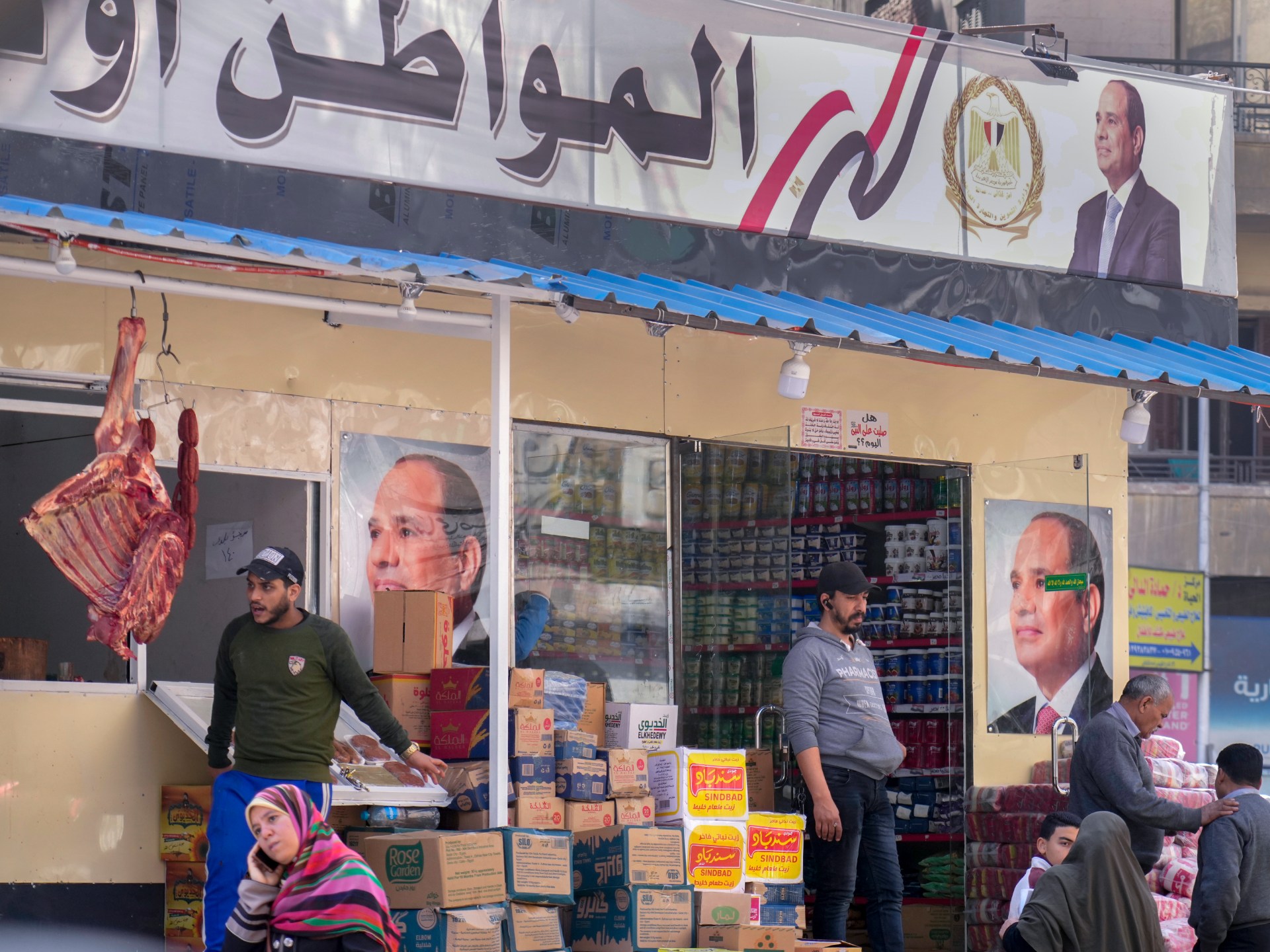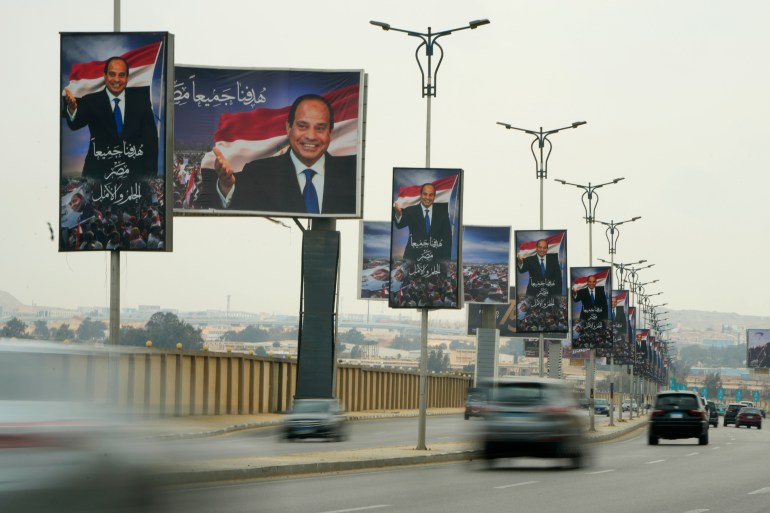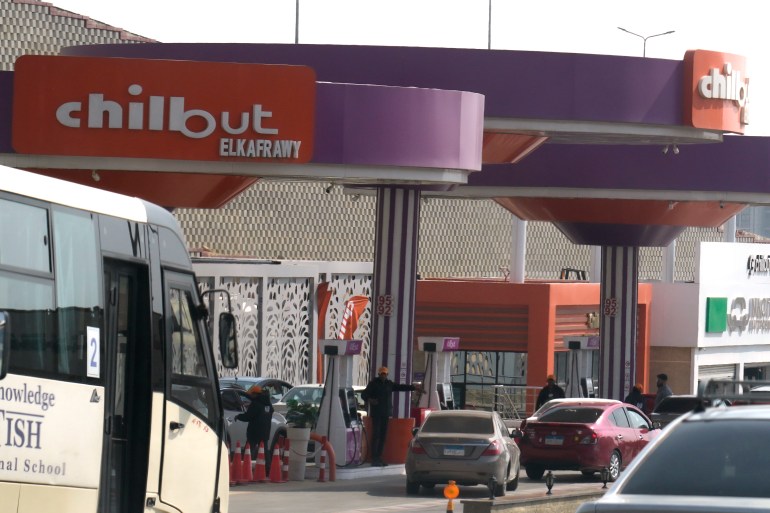
The Egyptian government has been busy selling off state assets as it pushes for privatization amid an ongoing economic crisis.
It is seen as an important step in overcoming Egypt’s hard currency deficit and a key condition tied to a $3 billion International Monetary Fund loan signed in December 2022.
In February, 32 state-owned companies were put up for sale, and despite some criticism of slow progress, last week the government announced that $1.9 billion worth of state assets had been sold.
The sale included a stake in a petrochemical and drilling company to the Abu Dhabi Development Fund (ADQ); Sale of shares in seven luxury hotels to a subsidiary of the Talat Mostafa Group; and shares in Al Is Dakhalia to its mother company, Is Steel. The last two buyers are Egyptian companies.
The IMF welcomed the sale of Egypt’s assets, reiterating that “extrication is an important element” of the debt deal.
In March, an IMF review of the status of economic reforms in Egypt – to be conducted before the release of the second tranche of loans – was postponed due to Egypt’s lack of progress, including what was perceived as a lack of privatization.
And so, with the loans needed to ease Egypt’s worst economic crisis in decades, the government moved to cooperate.
“The announced sale will certainly help the government’s negotiations with the IMF and make the IMF’s work easier — at least in the short term,” said Yezid Saigh, senior fellow at the Malcolm H. Kerr Carnegie Middle East Center. However, he added, “Egypt will face a continuing challenge to raise further volumes through additional sales.”
Annual inflation in Egypt has reached a record 36.8 percent, according to official figures, with food prices doubling at this pace. Dollars are basically not available in the country without the black market.
Traders suffer from import restrictions; Government debt has grown enormously; And international rating agencies downgraded Egypt’s credit rating. More than half of the 2023/24 budget is allocated to debt servicing.
For the IMF review to proceed, more asset sales alone will not be enough, Saigh noted. The IMF also claims that the Egyptian pound should float freely in the real exchange market. Over the past 1.5 years, the Egyptian pound has gone through several rounds of devaluation, losing almost half of its value, but since March this year, the official exchange rate has remained stable between 30.8 and 30.9 Egyptian pounds to the US dollar.

On the black market, however, a dollar changes hands at about 38 Egyptian pounds. President Abdel Fattah al-Sisi himself has suggested that no further devaluation is coming for now, as it is putting too much pressure on Egyptians.
to blame
The government has maintained that the crisis was caused by external shocks – the COVID-19 pandemic and the Ukraine war – while analysts have argued that the shocks have exposed structural weaknesses in Egypt’s economy.
For example, they point to massive government spending on projects that do not provide a return on investment, a prime example of which is $58 billion in new administrative capital. Egypt borrowed aggressively to finance these projects.
Meanwhile, military umbrella companies and security services have expanded under El-Sisi’s rule, which observers say hurts the private sector. Non-oil private sector activity contracted for 30 consecutive months.
Ishaq Diwan, a researcher at the Paris School of Economics, wrote in an analysis that the underlying problems facing the economy include low private investment and low export rates. A previous loan deal with the IMF in 2016 and accompanying economic reforms left both issues unresolved.
“The disconnect between rising borrowing and stagnant capacity to repay is at the heart of the current financial crisis,” writes Diwan.
The IMF sees a free-floating exchange rate as crucial to solving these problems. The devaluation will eliminate the parallel market, restore business confidence, improve Egypt’s export position and make the country more attractive to investors.
Yet, when Egypt devalued its currency in 2016, it did not boost exports and investment, and economist Osama Diab questioned the IMF policy.
“Egypt suffers from a structural trade deficit which means that demand for foreign exchange is always much higher than EGP. [Egyptian pound],” he said. “IMF conditionality has repeatedly failed to address these structural problems, and a new round of devaluations will always be ‘necessary’.”
On top of that, the size of the latest loan was much smaller than what Egypt had hoped for. The $3 billion is “negligible in terms of funding gaps”, Diab said. Even still, the IMF loan could be “useful in providing it with access to international capital markets,” he added.
According to Diwan, “the debt leaves Egypt with a hugely underfunded program and unsustainable finances”. He believed that – “sooner rather than later” – the terms of the loan would have to be renegotiated, perhaps “in the context of a major restructuring of Egypt’s debt”.

Fear of hyperinflation
As for the IMF loan, asset sales provided some immediate cash for emergency payments, but did not solve Egypt’s underlying debt problem.
“Regardless of minor announcements here or there, the bottom line is one of systemic failure of economic policy,” said Hafsa Halawa, a non-resident scholar at the Middle East Institute.
“The root causes that got us here are not changing and there appears to be little political will to bring about real change.”
Another way Egypt is dealing with its widening deficit is to expand the money supply, which could further fuel inflation and put pressure on the pound. One visible measure is the issuance of a new £20 bill which suddenly flooded the market earlier this month.
Among the business community, people fear Egypt is headed for hyperinflation and instability, said an entrepreneur who spoke on condition of anonymity.
“No one wants to invest. [Investors] Wait to see what happens to the exchange rate of the Egyptian pound and whether Egypt gets out of this situation first.”
He said many members of the community are leaving Egypt. “The best of us are leaving. The whole conversation is now about getting out.”
Local independent media outlet Mada Masor reported that the debt situation is so precarious that, in government circles, the option of “voluntarily defaulting on some loans and negotiating with lenders about a new payment schedule” is on the table.
The $1.9 billion asset sale appeared, at best, to be postponed for the time being rather than avoided.
“Messaging from the IMF and other lenders only serves to reinforce the policy of ‘can down the road,’ thereby prolonging and exacerbating the pain Egyptians will experience,” Halawa said.
Source link




